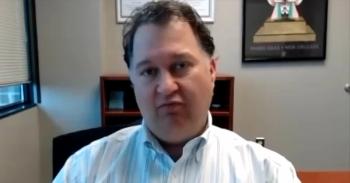
Novel PSMA-targeting PET ligand 18F-rhPSMA-7.3 adds to the recurrent prostate cancer armamentarium, according to Benjamin H. Lowentritt, MD, FACS.

Your AI-Trained Oncology Knowledge Connection!


Novel PSMA-targeting PET ligand 18F-rhPSMA-7.3 adds to the recurrent prostate cancer armamentarium, according to Benjamin H. Lowentritt, MD, FACS.
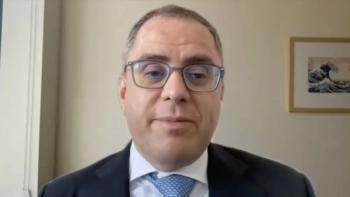
Ghassan K. Abou-Alfa, MD, discusses the importance of improving access to novel therapies and combinations for patients with hepatocellular carcinoma across the world.
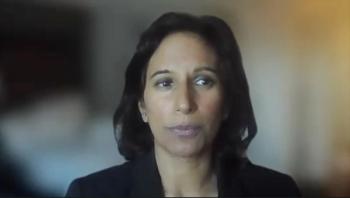
Durvalumab appeared to have no impact on the ability to deliver safe and timely radiation therapy to patients with high-risk locally advanced cervical cancer, according to Jyoti S. Mayadev, MD.
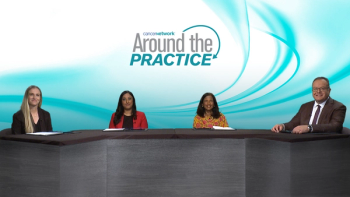
Dr Caitlin Costello presents the case of a patient with transplant-ineligible multiple myeloma and sparks a conversation on the available treatment regimens.

A look at how to measure an adequate treatment response in patients with transplant-ineligible newly-diagnosed multiple myeloma, and treatment regimens for high-risk patients.
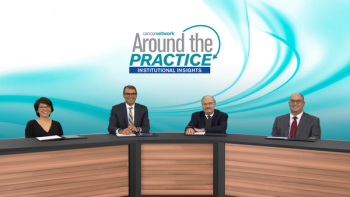
A brief discussion on the use of consolidation therapy to improve patient outcomes following transplant in newly diagnosed multiple myeloma.
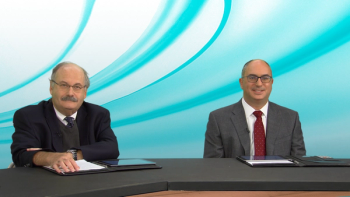
Expert perspectives on the real-world use of induction therapy and transplant in patients with transplant-eligible newly diagnosed multiple myeloma.
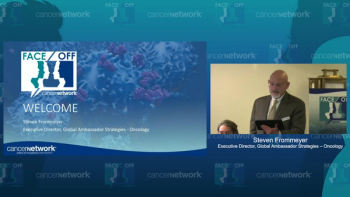
Malin Hultcrantz, MD, PhD, questions Shonali Midha, MD, about the data she presented on belantamab mafodotin in patients with relapsed/refractory multiple myeloma.

Dr DeAngelo shares data on the use of ponatinib for CML treatment after failure of second-generation TKIs.

Daniel DeAngelo, MD, PhD, presents data from a phase 3 study comparing asciminib and bosutinib after treatment with 2 or more prior TKIs in CML.

Dr Shonali Midha continues her analysis of belantamab mafodotin with a look at data on real-world use in R/R MM since its FDA approval in August 2020.
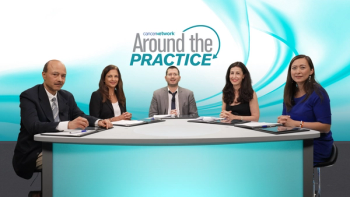
Focused discussion on the optimal selection and use of antibody-drug conjugate therapies in patients with metastatic urothelial carcinoma.

Expert perspectives on treatment sequencing pathways in metastatic urothelial carcinoma, with deference to recent trial data for both IO and ADC therapies.
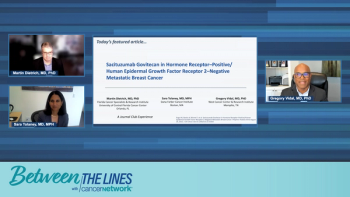
A commentary on key takeaways from TROPiCS-02, remaining questions and unmet needs in the field, and the clinical implications of using SG and other Trop-2–directed ADCs in patients with HR+/HER2- mBC.

Drs Dietrich, Tolaney, and Vidal comment on PFS subgroup analyses, response rates, and common adverse events (AEs) observed in the TROPiCS-02 trial.
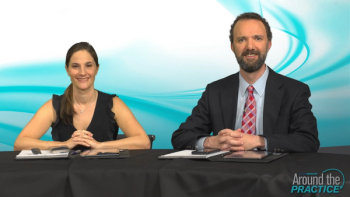
Cindy Varga, MD, presents a profile of a 59-year-old patient diagnosed with transplant-eligible multiple myeloma.
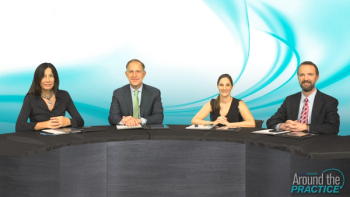
The panel discusses triplet and quadruplet regimen options for transplant-eligible NDMM, and the clinical implications of the DETERMINATION study.
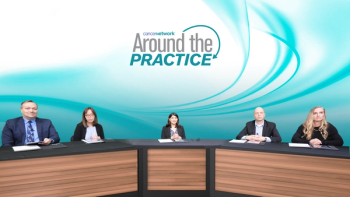
Closing out their discussion, the panel highlights unmet needs in multiple myeloma that clinicians and patients still face.

Drs Cowan and Anderson review whether older agents such as isa-based regimens still have a place in R/R MM treatment after the introduction of bispecific agents and CAR-T therapy.

Ghassan K. Abou-Alfa, MD, spoke about the recent approval of tremelimumab plus durvalumab for patients with unresectable hepatocellular carcinoma, based on results from the phase 3 HIMALAYA trial.

Shonali Midha, MD, highlights data from the DREAMM-5 study during her presentation on the use of belantamab mafodotin for late relapse multiple myeloma.

The Dana-Farber team puts Memorial Sloan Kettering to the test and questions the panel on the presented abstracts.

Dr Michael Mauro continues his presentation with a look at an analysis of the arterial occlusive events in the PACE trial in CML.

Dr Clifton Mo fields questions from the Memorial Sloan Kettering team about his presentation on IRd in relapsed/refractory multiple myeloma.
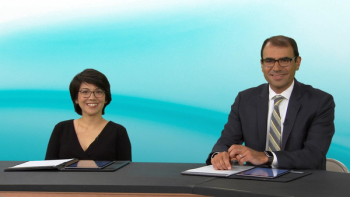
Comprehensive insight on induction therapy regimens in transplant-eligible newly diagnosed multiple myeloma based on the GRIFFIN, MASTER, and DETERMINATION clinical studies.

Expert panelists review the case of transplant-eligible newly diagnosed multiple myeloma and consider optimal selection of induction therapy.

The panel reviews a clinical scenario of metastatic urothelial carcinoma where the patient is not eligible for cisplatin treatment.

A comprehensive review of maintenance therapy strategies following chemotherapy in the context of optimizing patient outcomes.

The 12-month progression-free survival rates among patients with high-risk locally advanced cervical cancer were comparable with durvalumab plus chemoradiotherapy vs placebo plus radiotherapy.
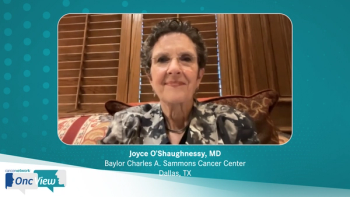
Dr. Joyce O’Shaughnessy closes the discussion with considerations for clinicians on monitoring patients with HER2-psotive breast cancer.